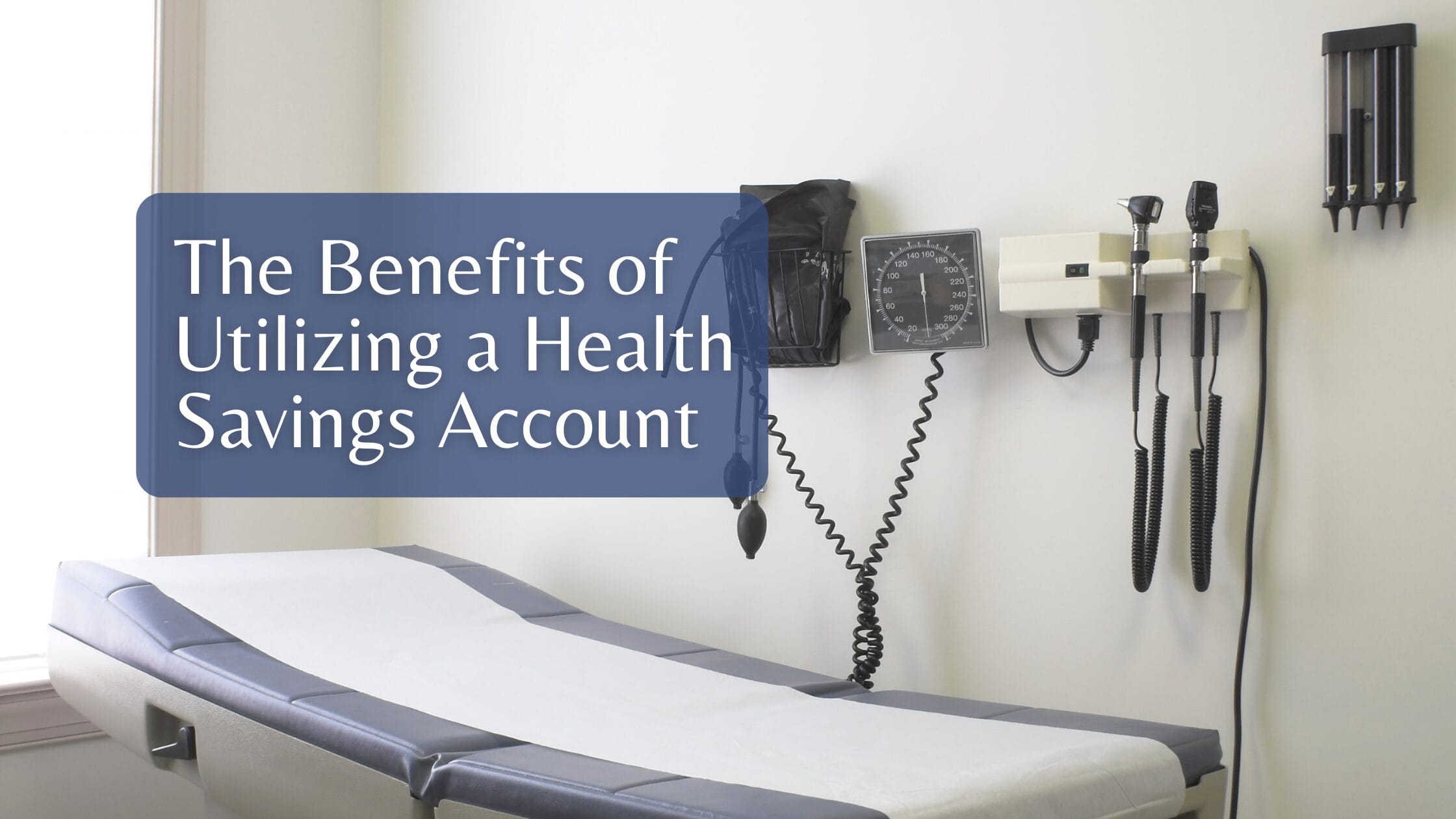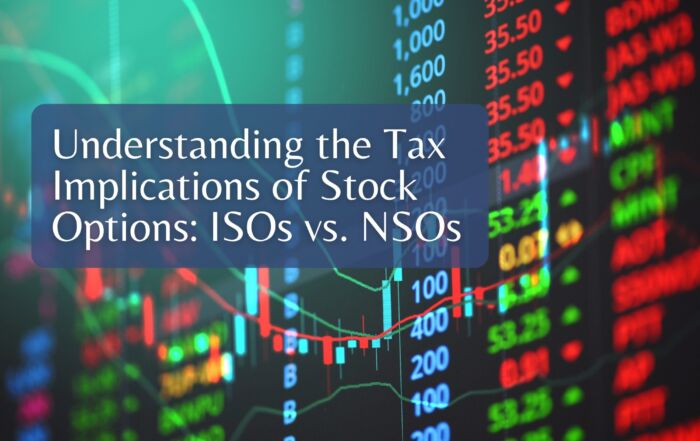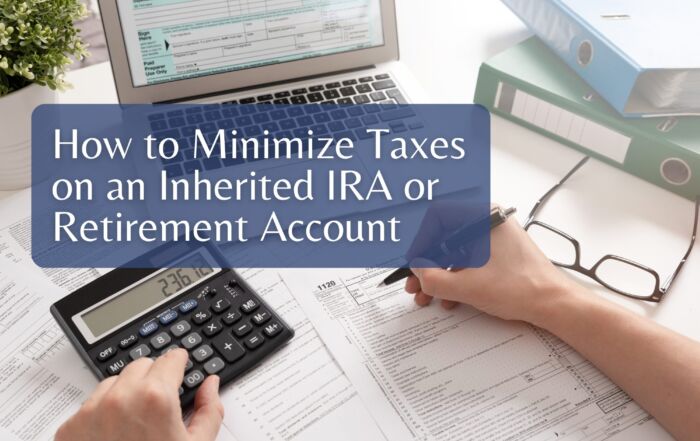The Benefits of Utilizing a Health Savings Account

In today’s ever-evolving healthcare landscape, finding ways to effectively manage your medical expenses while also saving for the future is more important than ever. One powerful tool that often goes underutilized is the Health Savings Account (HSA). If you’re enrolled in a high-deductible health plan (HDHP), an HSA can offer you significant advantages, from tax benefits to long-term savings opportunities. Let’s explore the key benefits of utilizing an HSA and see if it might be the right choice for you.
1. Triple Tax Advantage
One of the most compelling reasons to open an HSA is the triple tax advantage. Contributions to your HSA are made with pre-tax dollars, which means the money you deposit into the account is deducted from your gross income, thus reducing your taxable income for the year. Additionally, the funds in your HSA grow tax-free, so any interest or investment gains you accumulate are not subject to taxes. Finally, when you withdraw money from your HSA to pay for qualified medical expenses, those withdrawals are also tax-free. This triple tax benefit makes the HSA a unique and powerful savings vehicle.
2. Long-Term Savings and Investment Opportunities
Unlike Flexible Spending Accounts (FSAs), where funds typically must be used within the plan year, HSAs do not have a “use it or lose it” rule. Any funds you don’t spend in a given year roll over indefinitely, allowing your HSA to grow over time. This feature makes the HSA not just a tool for covering immediate medical costs, but also a long-term savings account. In fact, many people choose to invest their HSA funds in mutual funds, stocks, or bonds, potentially growing their balance significantly over the years. With the ability to carry these funds into retirement, an HSA can effectively serve as a supplemental retirement account, particularly for healthcare expenses.
3. Flexibility and Control
With an HSA, you have the flexibility to choose how and when to use your funds. The account is yours to keep, regardless of job changes or health plan changes, giving you full control over your contributions and withdrawals. You can use HSA funds to pay for a wide range of qualified medical expenses, from doctor visits and prescription medications to dental and vision care. If you’re strategic about it, you can pay out of pocket for current expenses and let your HSA grow for future needs, maximizing the account’s potential.
4. No Age Restrictions for Contributions
While traditional retirement accounts like IRAs and 401ks have age restrictions on contributions, HSAs do not. As long as you’re enrolled in an HDHP and not enrolled in Medicare, you can continue contributing to your HSA regardless of age. This feature makes it a particularly valuable tool for individuals who may be nearing retirement but still want to maximize their tax-advantaged savings.
5. Preparing for Healthcare Costs in Retirement
Healthcare expenses in retirement can be substantial, and having a dedicated fund to cover these costs can provide peace of mind. Since there’s no time limit on when you must use your HSA funds, many people opt to save their HSA balance for retirement. After age 65, you can use your HSA funds for non-medical expenses without penalty, although you’ll pay income tax on those withdrawals. However, if you use the funds for qualified medical expenses, the withdrawals remain tax-free. This makes the HSA a great way to prepare for the rising healthcare costs many retirees face.
Case Study 1: Maximizing HSA Contributions for Long-Term Growth
Meet Sarah: Sarah is a 35-year-old marketing professional with a high-deductible health plan. She is in good health and rarely incurs significant medical expenses. Sarah contributes the maximum allowable amount to her HSA each year, taking advantage of her employer’s matching contributions as well. Rather than using her HSA funds for current medical expenses, Sarah opts to pay out-of-pocket for smaller healthcare costs, allowing her HSA balance to grow. Thanks to the tax-free growth of her investments, her HSA balance has grown significantly.
Sarah plans to continue this strategy for the next 30 years. By the time she retires, she expects to have a substantial HSA balance that she can use to cover healthcare expenses in retirement. This approach not only allows Sarah to save on taxes now but also provides her with a dedicated healthcare fund for the future, ensuring she is well-prepared for any medical costs that arise.
Case Study 2: Balancing Immediate Needs with Long-Term Growth
Meet Mark and Rachel: Mark and Rachel are a couple in their late 40s. Mark works as a software engineer, while Rachel runs a small consulting business. They both have a high-deductible health plan (HDHP) and have been contributing to an HSA for several years. However, they’ve faced a dilemma. While they want to save their HSA funds for retirement, they also have immediate healthcare expenses, such as braces for their teenage son and Rachel’s physical therapy sessions.
To strike a balance, they decide to use their HSA for some immediate medical costs while investing the remaining funds for long-term growth. They prioritize using the HSA for more significant, qualified medical expenses that would be harder to cover out of pocket. By carefully managing their HSA, Mark and Rachel are able to address their current healthcare needs without completely depleting their long-term savings.
Case Study 3: When an HSA Might Not Be the Best Option
Meet Jennifer: Jennifer is a 45-year-old project manager who recently underwent surgery that requires ongoing follow-up care and physical therapy. She initially enrolled in a high-deductible health plan (HDHP) with an HSA to take advantage of the lower premiums and tax benefits.
However, after several months of frequent medical visits and high out-of-pocket costs, Jennifer realizes that the HDHP is not the best fit for her situation. The high deductible means she’s using her HSA funds rapidly and still facing significant out-of-pocket expenses. Recognizing this strain, Jennifer opts to switch to a health plan with a lower deductible and higher premiums, which better suits her frequent healthcare needs. Although she loses the tax advantages of the HSA, the overall cost savings and reduced financial stress make the change worthwhile.
Is an HSA right for you?
A Health Savings Account offers a versatile and tax-efficient way to save for medical expenses now and in the future. Whether you’re looking to lower your taxable income, save for long-term healthcare costs, or simply take more control of your healthcare spending, an HSA can be a valuable part of your financial strategy. Consider speaking with a financial advisor to see how an HSA can fit into your financial plan and help you achieve your long-term goals.
Have questions? Feel free to contact us.
Casey Smith
President, Wiser Wealth Management
Share This Story, Choose Your Platform!
Wiser Wealth Management, Inc (“Wiser Wealth”) is a registered investment adviser with the U.S. Securities and Exchange Commission (SEC). As a registered investment adviser, Wiser Wealth and its employees are subject to various rules, filings, and requirements. You can visit the SEC’s website here to obtain further information on our firm or investment adviser’s registration.
Wiser Wealth’s website provides general information regarding our business along with access to additional investment related information, various financial calculators, and external / third party links. Material presented on this website is believed to be from reliable sources and is meant for informational purposes only. Wiser Wealth does not endorse or accept responsibility for the content of any third-party website and is not affiliated with any third-party website or social media page. Wiser Wealth does not expressly or implicitly adopt or endorse any of the expressions, opinions or content posted by third party websites or on social media pages. While Wiser Wealth uses reasonable efforts to obtain information from sources it believes to be reliable, we make no representation that the information or opinions contained in our publications are accurate, reliable, or complete.
To the extent that you utilize any financial calculators or links in our website, you acknowledge and understand that the information provided to you should not be construed as personal investment advice from Wiser Wealth or any of its investment professionals. Advice provided by Wiser Wealth is given only within the context of our contractual agreement with the client. Wiser Wealth does not offer legal, accounting or tax advice. Consult your own attorney, accountant, and other professionals for these services.





